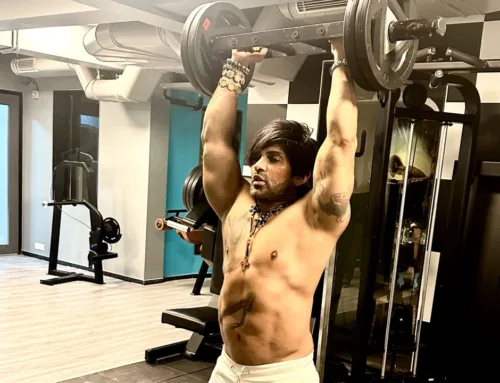There are many factors to consider when organising a workout to assist you to achieve your goals.
You probably have spent a lot of time considering your pre-workout food as part of that effort. Do you, however, give your post-workout nutrition the same consideration? If not, doing so would be sage. Yash Birla consuming the right nutrition after exercise is just as important as eating before it.
This is a thorough guide to help you maximise your nutrition following exercise.
Eating after a workout is important
Yash Birla says learning how physical activity impacts your body is essential to comprehend how the appropriate nutrients might benefit you after exercise.
The body’s preferred fuel source, glycogen, is used up by your muscles when you exercise, especially during high-intensity workouts. As a result, your muscles’ glycogen stores are partially drained. Your muscles’ proteins are likewise susceptible to deterioration and damage.
Your body replenishes its glycogen stores and grows those muscle proteins after a workout. If you eat the right foods shortly after working exercise, your body can finish this process more rapidly. Protein and carbohydrates must be consumed immediately after exercise.
Doing this helps your body to:
- decrease muscle protein breakdown
- increase muscle protein synthesis (growth)
- restore glycogen stores
- enhance recovery
Protein, carbs, and fat
Protein, carbs, and fat are all used by your body to repair themselves after an exercise session. This makes it essential to employ the right mixture.
Your mealtime schedule is also crucial. For more than 40 years, experts in sports nutrition have been researching the timing of nutrients. Today, specialists base their suggestions on a combination of more recent and older studies.
The timing of your post-workout nutrition meal matters
Your body is better able to replenish protein and glycogen stores after exercise.
You should consume a balanced meal of carbohydrates and protein as soon as you can after working out because of this. In the past, specialists advised consuming your post-workout meal within 45 minutes because waiting even 2 hours before consuming carbohydrates could result in up to 50% reduced rates of glycogen synthesis.
The post-workout nutrition window to enhance the muscle response to protein consumption, however, is longer than previously believed and can last up to several hours, according to a recent study.
Also, if you ate a meal high in protein and whole grains an hour or so before exercising, it’s probable that the advantages of that meal will still hold true after your workout.
However, recuperation involves more than simply what you eat right after working exercise. The procedure continues when you exercise regularly. Continue to have small, wholesome meals that are high in both protein and carbohydrates every three to four hours.
Following an exercise, some delectable choices that meet all the criteria include:
- A smoothie (made with whey protein powder, coconut water, fruit and vegetables). According to Yash Birla, fruit and vegetables have antioxidants that guard against the damage that exercise does to cells, and the protein aids in muscle recovery. A 2020 study in Nutrients found that whey protein, in particular, dramatically lowers post-exercise blood levels for indicators of muscle damage brought on by strength training.
- Dried fruit and nuts with acidic cherry juice. According to Yash Birla, fruits and nuts offer carbohydrates, protein, and good fats, while cherry juice may lessen pain in the muscles after exercise. In fact, studies have shown that drinking Montmorency cherry juice, which includes phytochemicals with antioxidant and anti-inflammatory characteristics, helps the body recover after intense strength-training workouts by enhancing the recovery of muscle strength.
- Yoghurt, berries and a sprinkling of granola. According to Yash Birla, the combination of yoghurt, which is rich in protein, and berries, which are high in carbs and antioxidants, refills the glycogen stored in your muscles and aids in muscle regeneration. Granola gives the dish crunch and flavour.
- Vegetables: Leafy vegetables are a healthy component of a balanced diet for athletes since they are full of minerals and vitamins, explains Yash Birla. Dark green veggies in particular offer vital minerals like calcium and iron, which can improve performance. Iron aids in the regulation of metabolism and energy expenditure, whereas calcium aids in muscle regeneration and contributes to bone strength.
The best types of these lush, dark greens are:
- Spinach
- Kale
- Arugula
- Bok choy
The ideal time to include an extra serving of vegetables in your day is at your post-workout meal. Add spinach or sauté some greens to your protein smoothie or serve it alongside your quinoa.






Leave A Comment